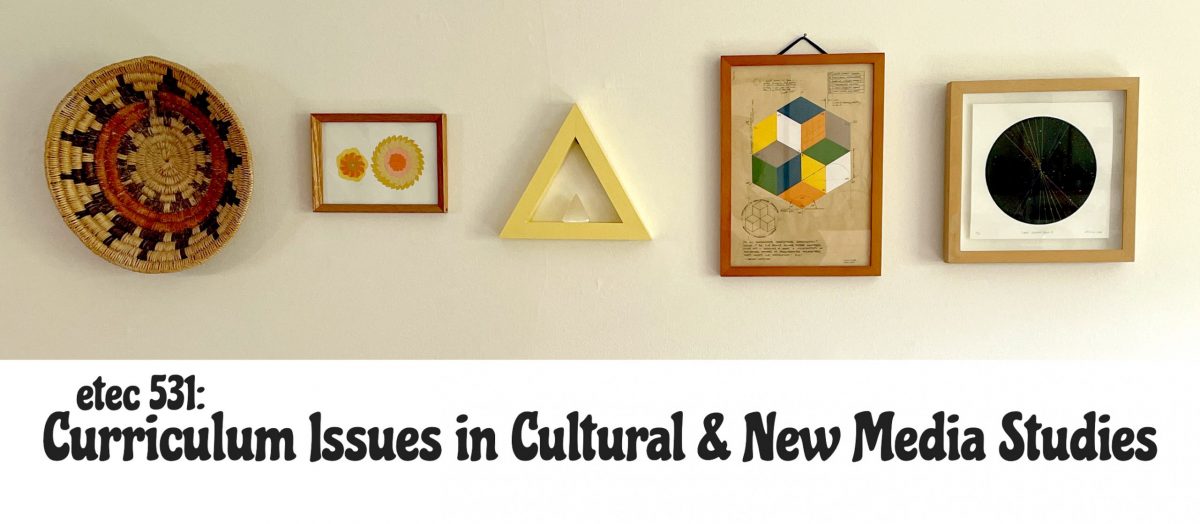Stuart Hall (1997) describes the immense complexity that exists within language: “…in order to say something meaningful, we have to ‘enter language’, where all sorts of older meanings, which pre-date us, are already stored from previous eras, we can never cleanse language completely, screening out all the other hidden meanings which might modify or distort what we want to say” (p. 17). It is that depth of shared understanding that allows for bonds to form between strangers, and that shapes cultures at micro and macro scales. Applying this notion to our current reality, where an increasing enormity of digital content is generated and circulated via new media, I think about how languages and cultures are developing and changing in rapid acceleration. So, how much of what we learn today is impacted by access to and engagement with new media? Everything?
If we also consider Foucault’s notion of discourse, the surrounding dialogue, opinions, and media content that, “constructs the topic. It defines and produces the objects of our knowledge. It governs the way that a topic can be meaningfully talked about and reasoned about” (p. 29), we understand that engagement with new media contributes to the rapid production of emerging discourse. Furthermore, as Hall explains, “…not only is knowledge always a form of power but power implicated in the questions of whether and in what circumstances knowledge is to be applied or not. This question of the application and effectiveness of power/knowledge was more important, than the question of its ‘truth’” (p. 33). Or rather, that knowledge generated through discourse, produces power, and in a sense, that power allows the knowledge to become truth, regardless of if it actually is. This suggests that not only is our learning impacted by our interactions with new media, but the power it holds – a power largely driven by AI algorithms, that “are by no means neutral, or automatically objective or truthful” (Buckingham, 2019, p. 48) – is actively forming and circulating new truths.
In opposition to this unruly power, the acceleration of new media dictates future pedagogies that focus on the development of critical thinking skills. Through this lens, we can understand the necessity of Buckingham’s (2019) call for a holistic form of media education, and Kellner and Share’s (2019) guide that sheds light on power dynamics inherent in media (new and old) by empowering educators and learners with the knowledge required to critically engage.
References
Buckingham, D. (2019). The media education manifesto. Polity.
Hall, S. (1997). The work of representation. Representation: Cultural representations and signifying practices. 2, 13-47.
Kellner, D. & Share, J. (2019). The critical media literacy guide: Engaging media and transforming education. (Vol. 2). Brill.
